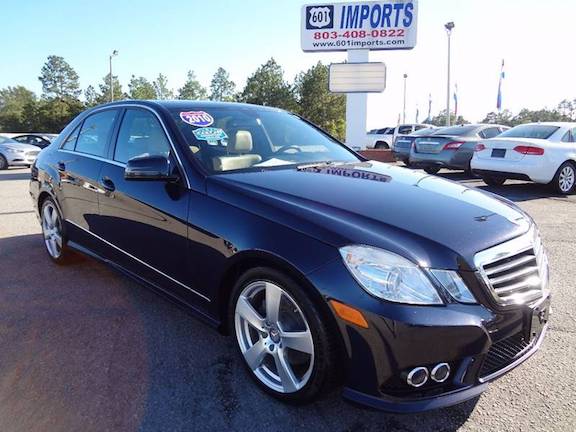Daimler AG got a break from the looming trade tension between the European Union and the U.S., helping to paper over a weak quarter and struggles in its Mercedes-Benz division.

In an unexpected cease-fire in the trade EU-U.S. trade spat, President Donald Trump and European Commission President Jean-Claude Juncker late Wednesday agreed to suspend new tariffs while negotiating lower barriers to transatlantic commerce. Signs of the two major trading partners backing away from a trade war helped lift Daimler as much as 1.1 percent, trailing gains at BMW AG and Fiat Chrysler Automobiles NV.
Daimler ships more than half of its Mercedes and Smart city cars it sells in the U.S. from the EU. Trump had threatened to slap import tariffs of 20 percent on vehicle imports, up from 2.5 percent. The manufacturer last month became the first prominent company to cut its profit outlook, blamed in part on escalating trade tension between the U.S. and China.
Indeed, the German manufacturer warned that lower second-quarter earnings at Mercedes-Benz passenger cars would extend into this period, because of tariffs on the cars it makes in the U.S. and exports to China. The company also flagged weaker pricing and weaker demand in that market. Fiat Chrysler on Wednesday said Chinese customers had held off from buying its luxury Maserati models ahead of a July duty reduction.
Daimler’s result was “broadly in line” with expectations and hit by a number of one-time effects, Evercore ISI analyst Arndt Ellinghorst said in a note, such as a supplier fire in the U.S. that temporarily shut down production. Ellinghorst pointed to a “challenging” second half of the year with higher raw material prices, currency headwinds and bottlenecks at the Mercedes-Benz division.
Daimler also highlighted bottlenecks on vehicle deliveries in the EU because of a new emissions testing regime that has also tripped up Volkswagen AG. Leaving last month’s reduced annual forecast of slightly lower group earnings intact, the company said challenges for the Mercedes division will ease toward the end of the year.
Mercedes vaulted past rival BMW in 2016 to become the world’s biggest luxury carmaker, after adding a range of new SUVs and overhauling the styling of its staid-looking sedans. With some products in its model lineup aging, sales momentum is slowing.
Increasing barriers to trade add to mounting challenges for carmakers under pressure to finance an unprecedented shift into electric vehicles. All three major U.S. carmakers, Fiat Chrysler, General Motors Co. and Ford Motor Co. cut their annual financial targets this week. South Korea’s Hyundai Motor Co. Thursday also warned of more troubles related to trade disputes.
“The automotive industry and therefore we too have many challenges to overcome,” Daimler Chief Executive Officer Dieter Zetsche said Thursday in a statement. “We plan to further strengthen and expand our position with numerous new models and technologies.”
Daimler, also the world’s biggest commercial vehicles maker, remains under scrutiny over its practices on diesel emission for passenger cars in Europe. Germany’s government ordered the carmaker to recall 774,000 vehicles in Europe over the alleged use of illegal defeat devices to circumvent emissions regulation. While the fix will avoid fines, and Daimler has rejected claims of deliberate cheating, it faces a number of lawsuits as U.S. authorities continue to probe its emissions setups.
Key facts:
- Daimler 2Q EBIT down 30% to 2.64 billion euros
- Daimler 2Q revenue down 1% to 40.8 billion euros
- Mercedes-Benz Cars Ebit down 20% to 1.9 billion euros
- Mercedes 2Q automaking margin declines to 8.4% vs 10% year ago
- Mercedes brand 2Q sales rise 1.9% vs 12% year ago
- Daimler trucks unit 2Q Ebit unchanged at 546 million euros






